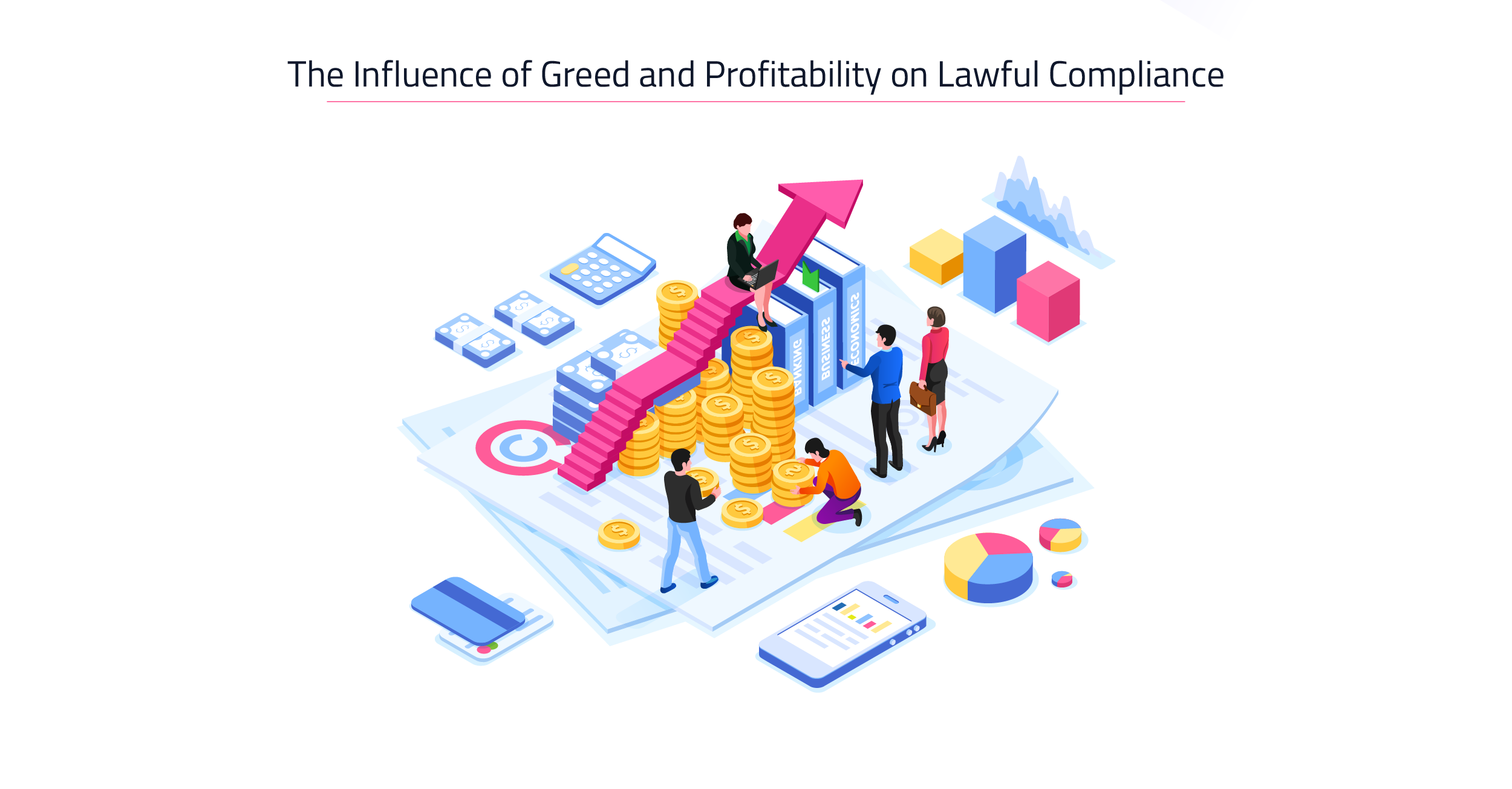
The Influence of Greed and Profitability on Lawful Compliance
Profit maximization is a key driver of modern business organizations. If a corporation cannot make the investment valuable for its owners who risked their money funding its operations, it might as well not exist.
Yet, churning profit involves taking risks: the higher the gain, the greater the gamble. And sometimes, the gamble does not pay off. Rather than admit to a poor judgement call, some organizations play cover-up, projecting a healthy bottom line driven by questionable ethics and compliance.
The downfall of the Enron Corporation, for instance, is the perfect example that portrays the depths of corporate greed. At the turn of the 21st century, an organization hailed as one of the biggest success stories of the 90’s culminated in a dizzying collapse. CEOs Kenneth Lay and Jeffrey Skilling relied on complex accounting methods to gloss over large debt, manipulating books to show inflated bottom lines. Despite Enron’s questionable practices, one of the leading accounting firms of those times, Arthur Andersen LLP, gave the company a clean chit. Eventually though, regulators uncovered the foul play and both companies were penalized, finally ceasing to exist.
A number of other institutions were also slapped with litigation costs and regulatory fines. Despite the dire outcomes, financial greed has steadily grown since then. Making fast money has become more important than ever before.
In recent times, Denmark’s Danske Bank has been embroiled in money laundering controversies, possibly aided by correspondent lender Deutsche Bank turning a blind eye to red flags. The German bank has three more investigations about its dubious practices. A Forbes article likened Deutsche’s addiction to money with drug addiction, stating that authorities should be stricter while evaluating its compliance.
Eye on the Short Term Prize
The issue is that businesses are lured by short-term avarice and immediate gains, to an extent where the long-term, cost-benefit decision is eschewed in the bargain. Making the ethically correct decision is definitely more time-consuming and costly. Filing and following through on suspicious activity reports call for more resources in terms of personnel and money.
It is likely that officials brush aside a number of regulatory requirements in a bid to save on compliance costs and retain potentially profitable clients. The idea of lawful compliance then becomes a culture problem. Demanding strong ethical practices has to start at the top. Leaders have to put compliance first, even if it means that profits take a temporary hit. When the outlook changes from creating profits for shareholders, to improving overall wealth of the organization, making the right choice will not seem as hard.


